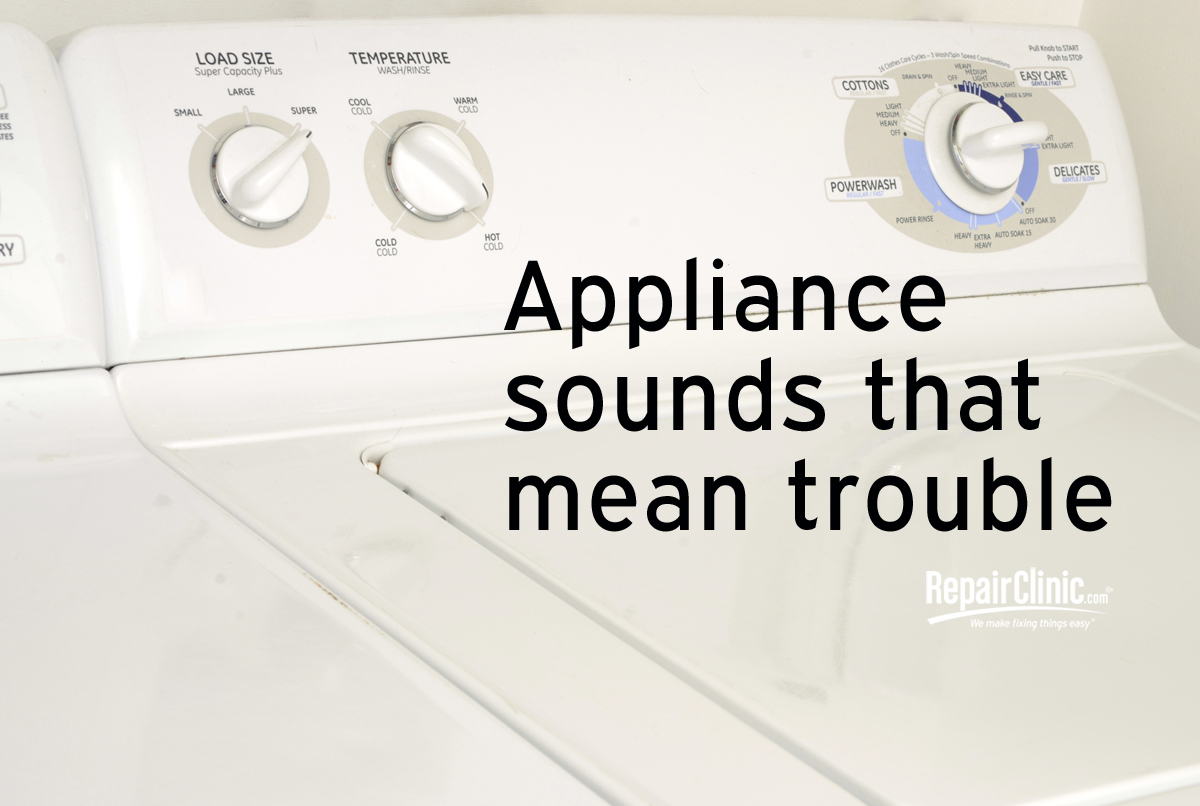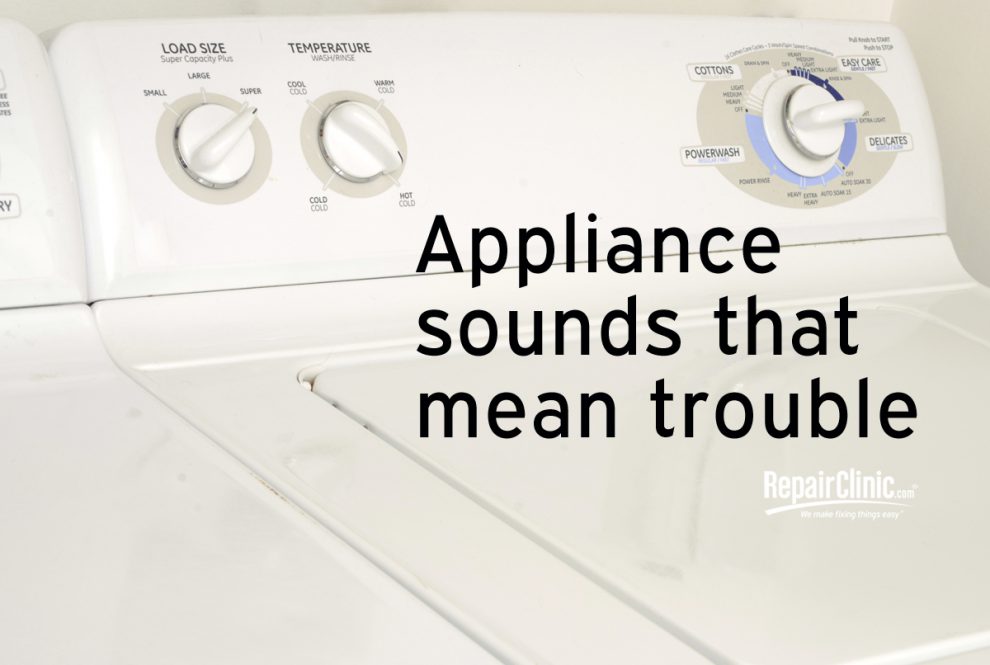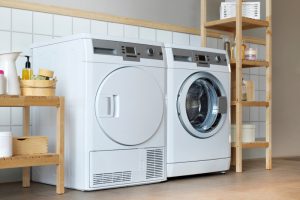
It's extremely important to pay attention to changes in performance of your appliances. Changes in operational sound indicate that key components are worn or damaged. Taking fast action to fix these issues may prevent expensive repairs and protect other components from premature failure.
Dryer
Thumping
Possible cause: A drum roller is worn out.
Possible solution: Inspect drum rollers for wear and replace as needed.
Fast, rattling
Possible cause: A zipper, button, coin or any other small object may be trapped in the blower wheel.
Possible solution: Remove blower wheel and inspect. Remove object, test operation and go back to position.
Rumbling
Possible cause: A worn drum support roller and axle.
Possible solution: Inspect for wear or damage and replace if needed.
Squealing
Possible cause: A fast, high-pitch squeal could be a faulty belt idler wheel. A slower, lower toned squeal might be caused by worn roller bearings or perhaps a faulty rear drum bearing.
Possible solution: Inspect the idler wheel rollers and drum bearings and replace as necessary.
Dryer Repair Help
Look for parts
Dryer maintenance tips
Dishwasher
General loudness
Possible cause: Clogged or malfunctioning drain pump.
Possible solution: Remove debris from pump and replace as necessary.
Roaring or “freight-train” during wash cycle
Possible cause: Bad bearings in the circulation pump motor.
Possible solution: Inspect and replace the circulation pump motor or pump and motor assembly if required.
Squealing or chattering during water fill stage
Possible cause: Low, insufficient water pressure or clogged orifice or diaphragm in water inlet valve.
Possible solution: Check your home's water supply. Dishwasher water pressure should be at least 20 psi. If the water pressure is sufficient, switch the water inlet valve.
Central ac system
Condensing unit notably louder
Possible cause: Worn or damaged fan blade or fan motor.
Possible solution: Replace these parts as needed.
Rattling
Possible cause: Broken compressor motor mount.
Possible solution: Ensure the condensing unit is level and the compressor's mounting bushings are intact. Adjust as needed. If the noise continues, the compressor's internal motor mounts may need to be replaced. In some cases, it may be less expensive to replace the entire condensing unit instead of replace those individual parts.
Furnace
General rise in noise level
Possible cause: Debris in blower or faulty blower motor.
Possible solution: Clean debris from the blower wheel or replace blower motor.
Gurgling
Possible cause: In case your furnace is equipped with a cooling coil or a combustion blower, water may be backing up from a clogged drain.
Possible solution: Look for obstructions in the drain line and clear as needed.
Refrigerator
Periodic squeaking, squealing, chirping or rumbling that is noticeably louder once the refrigerator door is open.
Possible cause: Worn evaporator motor.
Possible solution: Switch the evaporator motor.
Ticking
Possible cause: Faulty defrost timer.
Possible solution: Replace it.
Popping and hissing/sizzling
Possible cause: Popping and hissing sounds are part of normal operations. If you open the freezer door, you may hear the frost melting into water and striking the defrost heater, causing a hissing or sizzling sound. This noise takes about 20 to 30 min.
Possible solution: N/A – it's normal.


















